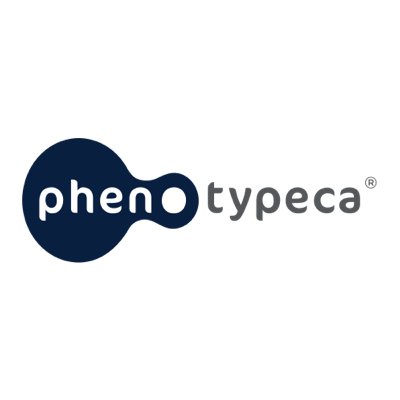November 2, 2022 PR-M11-22-03
Phenotypeca, a pioneering and progressive biotech company, is improving access to ethical healthcare through offering a low-cost animal-free recombinant protein production platform. This is the latest step in making healthcare more sustainable and inclusive, following the launch of axunio Pharma’s vegan-certified paracetamol — the world’s first medicine to carry The Vegan Society’s Vegan Trademark.
Globally, people are becoming increasingly mindful of the ethical and environmental impact of animal-derived products. Experts predict that one in four people will be vegetarian or vegan by 2025 and a prominent scientific study cites a vegan diet as the single biggest way to reduce a person's impact on planet Earth. Yet, according to the Vegan Society, almost 75% of the most commonly prescribed medicines in the UK contain animal-derived products.
Phenotypeca is working to close this gap by combining scientific curiosity with nextgeneration genomics techniques. With a company mission of making medicines more affordable and accessible to all that need them, this extends to the considerations of the consumers and their needs.
Many medicines, including several antibody therapies and vaccines, are made up of biological proteins that can be produced inside living cell biofactories. Two popular biofactory systems are mammalian cells, such as Chinese hamster ovary (CHO) cells, and yeast, including baker’s yeast. Both systems can create and fold proteins in a similar way to human cells, producing human-compatible therapeutics. The two systems are closely matched in purpose but miles apart in ethical considerations - mammalian cells are an animal-derived product whereas baker’s yeast is vegan.
The vegan approach is more cost effective; mammalian cells rely on a continuous supply of CO2 and require expensive culture media to maintain them, baker’s yeast produces high levels of therapeutic protein without needing CO2 therefore reducing the cost. Furthermore, it’s already been given the stamp of approval by the vegan community where is has been consciously consumed in breads, beer, wine and other fermented products.
Non-animal cell biofactories, such as baker’s yeast, will likely become increasingly desirable as countries seek to meet emission targets and the world moves towards a sustainable future. Phenotypeca always use animal-free baker’s yeast in their recombinant protein production systems, ensuring medicines are suitable for vegans from the point of manufacture and impact on the environment is minimised.
Ed Louis, Chief Scientist at Phenotypeca, concludes: “Of the several benefits of using baker’s yeast for therapeutic manufacturing, including long safe use and lower cost of goods, being animal-free means that we can confidently contribute to the development of the ever-increasing vegan medicines market. With up to eight-million vegans in the UK, this is an important niche of healthcare that will make medicines more accessible for all that need them as it continues to grow.”
Read more about Phenotypeca’s cutting-edge innovation here: Phenotypeca kicks off lab 4.0 project.

Nice Insight, established in 2010, is the research division of That’s Nice, A Science Agency, providing data and analysis from proprietary annual surveys, custom primary qualitative and quantitative research as well as extensive secondary research. Current annual surveys include The Nice Insight Contract Development & Manufacturing (CDMO/CMO), Survey The Nice Insight Contract Research - Preclinical and Clinical (CRO) Survey, The Nice Insight Pharmaceutical Equipment Survey, and The Nice Insight Pharmaceutical Excipients Survey.

Phenotypeca is a yeast Biofoundry business that uses a next generation recombinant baker’s yeast platform to discover strains that make medicines more affordable for everyone. The company owns the world’s largest collection of yeast strains engineered for industrial recombinant protein production, comprising up to a billion genetically distinct strains. Phenotypeca recently won several commercial and licensing projects on its platform and is currently seeking further funding.